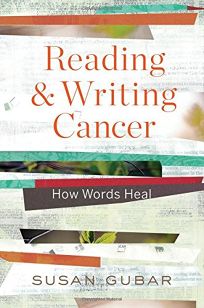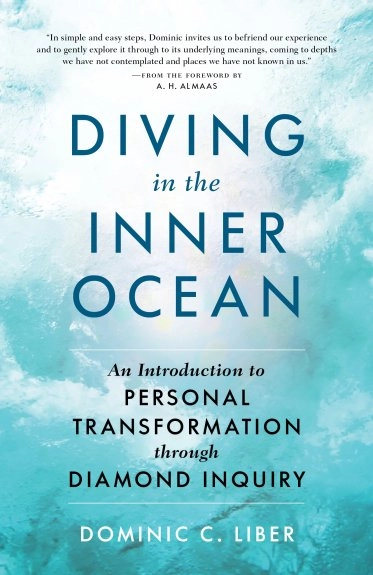The research that Dr. Fredrickson and others have done demonstrates that the extent to which we can generate positive emotions from even everyday activities can determine who flourishes and who doesn’t.
YOU MIGHT ALSO LIKE
CLEAR ALL
BY TOPIC
BY TYPE
FILTER

TOPIC
- Empathy (28)
- Positive Thinking (28)
- Self-Development (26)
- Building Character (22)
- Self-Discovery (22)
- Self-Compassion (21)
- Buddhism (19)
- Self-Care (19)
- Self-Realization (17)
- Transformation (17)
- Happiness (16)
- Emotional and Mental Health (15)
- Meditation (15)
- Awareness (14)
- Neuroscience (14)
- Well-Being (14)
- Fellowship and Community (13)
- Mindfulness (13)
- Self-Healing (13)
- Spiritual Awakening (13)
- Spiritual Growth (13)
- Gratitude (12)
- Intention (12)
- Lovingkindness (12)
- Self-Acceptance (12)
- Self-Limiting Beliefs (12)
- Self-Love (12)
- Authenticity (11)
- Community Healing (11)
- Compassion Meditation (11)
- Emotional Intelligence (EQ) (11)
- Forgiveness (11)
- Mindfulness Practices (11)
- Positive Self-Talk (11)
- Psychology (11)
- Self-Mastery (11)
- Joy (10)
- Suffering (10)
- Finding Meaning (9)
- Generosity (9)
- Human Potential (9)
- Inner Life (9)
- Journaling (9)
- Mind-Body Connection (9)
- Negative Self-Talk (9)
- Search for Purpose (9)
- Self-Reckoning (9)
- Visualization (9)
- Affirmations (8)
- Fear (8)
- Growth Mindset (8)
- Inner Peace (8)
- Love (8)
- Personal Development (8)
- Activism/Service (7)
- Communication Skills (7)
- Courage (7)
- Enlightenment (7)
- Habit Formation (7)
- Leadership (7)
- Longevity (7)
- Positive Psychology (7)
- Relationship Challenges (7)
- Resilience (7)
- Spiritual Life (7)
- Anger (6)
- Anxiety (6)
- Confidence (6)
- Goal Setting (6)
- Imagination and Creativity (6)
- Life Challenges (6)
- Presence (6)
- Setting Limits and Boundaries (6)
- Social Responsibility (6)
- Spiritual Development (6)
- Tibetan Buddhism (6)
- Values (6)
- Acceptance (5)
- Cancer (5)
- Consciousness (5)
- Empowerment (5)
- Grief (5)
- Letting Go (5)
- Moral Philosophy (5)
- Self-Actualization (5)
- Self-Worth (5)
- Spiritual Practices (5)
- Stress Management (5)
- BIPOC Well-Being (4)
- Breathwork (4)
- Dysfunctional Childhood (4)
- Energy Healing (4)
- Epigenetics (4)
- Focus (4)
- Friendship (4)
- Habits of Mind (4)
- Integrity (4)
- Interdependence (4)
- Lovingkindness Meditation (4)
- Neuroplasticity (4)
- Offering Support to Others (4)
- Perception (4)
- Racial Justice (4)
- Self-Control (4)
- Spiritual Direction (4)
- Subconscious (4)
- Aging (3)
- Caregiver Well-Being (3)
- Death and Dying (3)
- Decision Making (3)
- Depression (3)
- Dharma (3)
- Diamond Approach (3)
- Endurance (3)
- Facing Own Death (3)
- Female Empowerment (3)
- God (3)
- Grit (3)
- Guilt (3)
- Humility (3)
- Identity (3)
- Jealousy/Envy (3)
- Karma (3)
- Living with Illness (3)
- Oneness (3)
- Patience (3)
- Prayer (3)
- Racial Discrimination (3)
- Racial Healing (3)
- Relationship with Money (3)
- Relationship with Time (3)
- Romantic Relationships (3)
- Shame (3)
- Social Justice (3)
- Soul Mission (3)
- Trauma Healing (3)
- Trust (3)
- Vulnerability (3)
- Accepting Love (2)
- Athlete Well-Being (2)
- Belonging (2)
- Black Well-Being (2)
- Brain Health (2)
- Christianity (2)
- Connection (2)
- Creative Well-Being (2)
- Curiosity (2)
- Diet and Nutrition (2)
- Disabled Well-Being (2)
- Disconnection (2)
- Embodiment (2)
- Enneagram (2)
- Entrepreneurship (2)
- Family Dynamics (2)
- Freedom (2)
- Healing Approaches (2)
- Hope (2)
- Intimacy (2)
- Living as an Empath (2)
- Mindfulness Meditation (2)
- Neoshamanism (2)
- Non-Duality (2)
- Optimism (2)
- Peak Performance (2)
- Post-Traumatic Growth (2)
- Psychology and Spirituality (2)
- Racism (2)
- Science and Spirituality (2)
- Self-Esteem (2)
- Self-Expression (2)
- Self-Reliance (2)
- Shadow (2)
- Spiritual Quest (2)
- The Divine (2)
- Wake-Up Calls (2)
- Women’s Well-Being (2)
- Work Challenges (2)
- Yoga (2)
- Zen Buddhism (2)
- Access to Education (1)
- Adaptability (1)
- Addiction (1)
- Addiction Recovery (1)
- Anger Management (1)
- Astral Projection (1)
- Attachment Theory (1)
- Awe (1)
- Binaural Beats (1)
- Body Positivity (1)
- Building Culture (1)
- Chakras (1)
- Children’s Well-Being (1)
- Christian Mysticism (1)
- Chronic Anxiety (1)
- Codependency (1)
- Cognitive Behavioral Therapy (1)
- Cognitive Psychology (1)
- Collective Trauma (1)
- Comparing Belief Traditions (1)
- Compassion Fatigue (1)
- Competition (1)
- Conflict Resolution (1)
- Connection with Nature (1)
- Conscience (1)
- Cross-Cultural Dynamics (1)
- Dark Night of the Soul (1)
- Death or Loss of a Loved One (1)
- Death or Loss of a Parent (1)
- Despair (1)
- Divorce and Breakup (1)
- Ecospirituality (1)
- Ego Transcendence (1)
- Environmental Justice (1)
- Exercise (1)
- Failure (1)
- Faith (1)
- Faith Healing (1)
- Feminism (1)
- Gender Challenges (1)
- Guided Meditation (1)
- Handling a Loved One’s Illness (1)
- Healthy Eating (1)
- Higher Calling (1)
- Humanitarian Aid/Relief Work (1)
- Identity Shifts (1)
- Indigenous Well-Being (1)
- Inner Child (1)
- Inner Strengths (1)
- Intergenerational Trauma (1)
- Intuition (1)
- Jungian Analysis (1)
- Life Force Energy (1)
- Life-Altering Injury (1)
- Lifestyle Medicine (1)
- Loneliness (1)
- Loss of an Animal Companion (1)
- Marriage (1)
- Masculine/Feminine Dynamics (1)
- Memoir (1)
- Motherhood (1)
- Motivation (1)
- Native American Beliefs (1)
- Neopaganism (1)
- Neuropsychology (1)
- Passion (1)
- Personality Typing (1)
- Physical Health (1)
- Poetry (1)
- Postpartum Depression (1)
- Problem Solving (1)
- Racial Identity (1)
- Religious Experience (1)
- Sacred Feminine (1)
- Self-Discipline (1)
- Sex (1)
- Sexual Health (1)
- Sleep (1)
- Slumps (1)
- Social Anxiety (1)
- Social Presence (1)
- Speaking Your Truth (1)
- Spiritual Healing (1)
- Storytelling (1)
- Stress (1)
- Sufism (1)
- Talk Therapy (1)
- Toxic Relationships (1)
- Trauma (1)
- Unfulfilled Career (1)
- Veteran Well-Being (1)
- Whiteness (1)
- Wholeness (1)
- Witch (1)
- Witchcraft (1)
- Women’s Rights (1)
- Work Ethic (1)
- Work Relationships (1)
- Young Adult Well-Being (1)
- Zen Meditation (1)
FILTER

TEACHER
- Dacher Keltner (5)
- Harriet Lerner (5)
- Martin Luther King Jr. (5)
- Sharon Salzberg (5)
- Thubten Chodron (5)
- Daniel Goleman (4)
- Debbie Ford (4)
- James Doty (4)
- Karla McLaren (4)
- Michael Bernard Beckwith (4)
- Paul Gilbert (4)
- A. H. Almaas (3)
- Barbara Fredrickson (3)
- don Jose Ruiz (3)
- Eckhart Tolle (3)
- J. Krishnamurti (3)
- Joan Halifax (3)
- Marc Ian Barasch (3)
- Oprah Winfrey (3)
- Wayne Dyer (3)
- Brendon Burchard (2)
- Brian Tracy (2)
- Deepak Chopra (2)
- don Miguel Ruiz (2)
- Elizabeth Lesser (2)
- Gabrielle Bernstein (2)
- Gaylon Ferguson (2)
- James Hillman (2)
- John C. Parkin (2)
- Jon Kabat-Zinn (2)
- Lisa Feldman Barrett (2)
- Lodro Rinzler (2)
- Matthieu Ricard (2)
- Michael A. Singer (2)
- Natalie Goldberg (2)
- Neale Donald Walsch (2)
- Richard Davidson (2)
- Stephen Mitchell (2)
- Tony Robbins (2)
- Adam Phillips (1)
- Alberto Villoldo (1)
- Amy Morin (1)
- Andy Puddicombe (1)
- Angela Duckworth (1)
- Anne Lamott (1)
- Anodea Judith (1)
- Ashley Neese (1)
- Barbara Emrys (1)
- BJ Miller (1)
- Brené Brown (1)
- Bruce Lipton (1)
- Camille Helminski (1)
- Charlotte Joko Beck (1)
- Chip Conley (1)
- Chögyam Trungpa (1)
- Colleen Saidman Yee (1)
- Cynthia Bourgeault (1)
- Donna Eden (1)
- Dorothy Day (1)
- Elena Brower (1)
- Ellen Bass (1)
- Emiliana Simon-Thomas (1)
- Gabor Maté (1)
- Gangaji (1)
- Gay Hendricks (1)
- HeatherAsh Amara (1)
- Howard Thurman (1)
- Iyanla Vanzant (1)
- Jack Kornfield (1)
- James Hollis (1)
- James Martin (1)
- Jane Hirshfield (1)
- Jesus (1)
- John Bradshaw (1)
- Joseph M. Marshall III (1)
- Judith Orloff (1)
- Karen Armstrong (1)
- Karen Casey (1)
- Kelly McGonigal (1)
- Krista Tippett (1)
- Lama Surya Das (1)
- Leah Guy (1)
- Lewis Howes (1)
- Linda Hogan (1)
- Lion Goodman (1)
- Louise Hay (1)
- Lucille Clifton (1)
- Lynne McTaggart (1)
- Marie Forleo (1)
- Mark Nepo (1)
- Mark Victor Hansen (1)
- Martin Seligman (1)
- Matthew Fox (1)
- Maya Angelou (1)
- Michael Brown (1)
- Michael Pollan (1)
- Mooji (1)
- Nancy Mellon (1)
- Naomi Shihab Nye (1)
- Noah Elkrief (1)
- Norman Fischer (1)
- Ondrea Levine (1)
- Panache Desai (1)
- Philip Goldberg (1)
- Phillip Moffitt (1)
- Piero Ferrucci (1)
- Ralph De La Rosa (1)
- Ram Dass (1)
- Rebecca Solnit (1)
- Renee Baribeau (1)
- Robert Augustus Masters (1)
- Robert Sapolsky (1)
- Rodney Yee (1)
- Roxanne Dault (1)
- Russ Hudson (1)
- Sandra Ingerman (1)
- SARK (1)
- Shakti Gawain (1)
- Shauna Shapiro (1)
- Simon Sinek (1)
- Stephen Levine (1)
- Sylvia Boorstein (1)
- Tara Brach (1)
- Temperance Alden (1)
- V (1)
- Yongey Mingyur Rinpoche (1)










